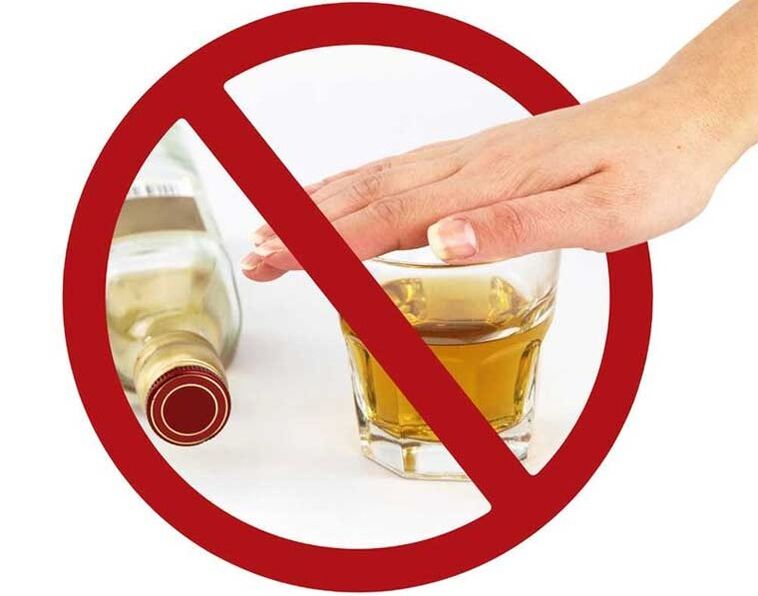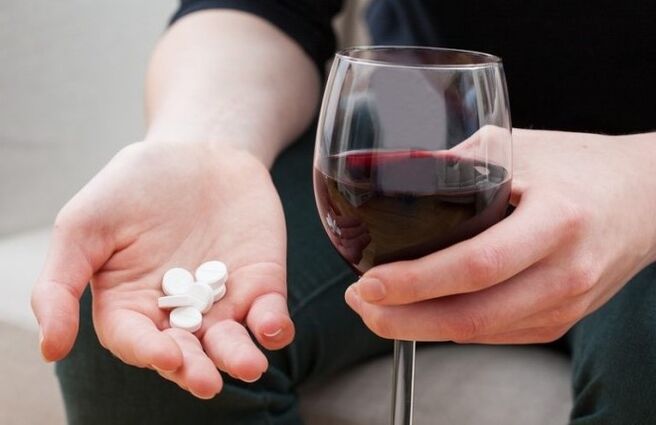It’s no secret that dental treatment requires anesthesia to reduce pain. This procedure should be approached responsibly by both the dentist and the patient. It is recommended to refrain from consuming alcoholic beverages to avoid unpleasant consequences and minimize risks. Why do experts ask you to give up alcoholic beverages during a dental procedure? You need to understand this issue in more detail.
Why not drink alcohol before visiting the dentist?
Can I drink hard drinks before dental treatment? It is highly undesirable to drink alcohol before visiting a doctor, as the effectiveness of dental anesthesia and the end result depend on the general condition of the body.

- Many anesthetics are used for dental procedures. They paralyze nerve fibers, suppress pain. Alcohol interferes with medication under local anesthesia, leading to increased sensitivity of the teeth and gums.
- Painkillers themselves cause side effects such as dizziness, cramps, nausea and vomiting. Alcohol increases the harmful effects on the body, which can cause anaphylactic shock.
- It is strictly forbidden to drink alcohol before brushing your teeth. Ethyl alcohol entering the blood reduces its ability to clot, dilates blood vessels and increases the risk of complications. Bleeding is difficult to stop, resulting in a chronic inflammatory process.
Negative effects of alcoholic beverages
Many people mistakenly believe that drinking alcohol after dental treatment disinfects the oral cavity. But this is a big mistake. Are alcohol and dental anesthesia compatible? If you don’t want to harm your health, think about the harmful effects of alcohol on your body. Why is it dangerous to drink alcohol for dental treatment? It leads to the following negative consequences:
- corrodes enamel, destroys teeth,
- reduces the anesthetic effect,
- causes inflammation
- increases the risk of allergic reactions,
- causes blood pressure fluctuations
- increases the load on the liver and cardiovascular system,
- increases pain
- slows down tissue healing,
- causes loss of consciousness.
In addition, alcohol in combination with an anesthetic has a negative effect on the central nervous system. There are often unforeseen side effects: headache, weakness, cramps, palpitations.
How long can you drink alcohol after anesthesia
How long can you drink alcohol after anesthesia? The term is defined by the dentist and depends on the nature of the procedure and the type of treatment. Anesthesia is not processed immediately, so the holiday should be postponed. You must wait at least one day after dental procedures. Alcohol consumption is allowed 48 hours after complete removal of the drug. It is worth noting that it is recommended to extend the rejection of strong drinks for 6-7 days after tooth extraction. If your blood clotting is low, it is better to stay longer. This reduces the risk of complications: inflammation, reproduction and infection.
Alcoholic beverages can greatly affect the outcome of treatment. As a result, the dental intervention will be ineffective and unsuccessful. No matter how much you want to overcome anxiety and stress, it’s better to forget about alcoholic beverages during the process.
Recommendations
All alcoholic beverages contain ethyl alcohol. If you drink vodka, wine, cognac or beer, the liver absorbs double the load. The body must metabolize both the painkiller and the alcohol. The negative effect on the liver may be exacerbated by the use of antibiotics, analgesics, antihistamines. You need to avoid toxic shock follow these tips:
follow these tips:
- Avoid drinking alcohol if you plan to visit your dentist on the same day.
- If the dental procedure involves the use of antibiotics, it is best not to consume alcoholic beverages during treatment.
- Prior to appointment, the dentist should be informed of the presence of allergic reactions and medications used the previous day.
- Remember that the success of a medical procedure depends on proper preparation. If dental surgery is irresponsible, additional anesthesia or reoperation may be required.
There is no doubt that consuming strong drinks during dental anesthesia is highly undesirable. If you want the procedure to be safe and painless, read the recommendations above carefully.
Don't be afraid to visit the dentist's office. You can consult a competent professional who will tell you how to properly prepare for the treatment process. A professional dentist will select an individual anesthetic and advise on the most effective method for a speedy recovery.
























